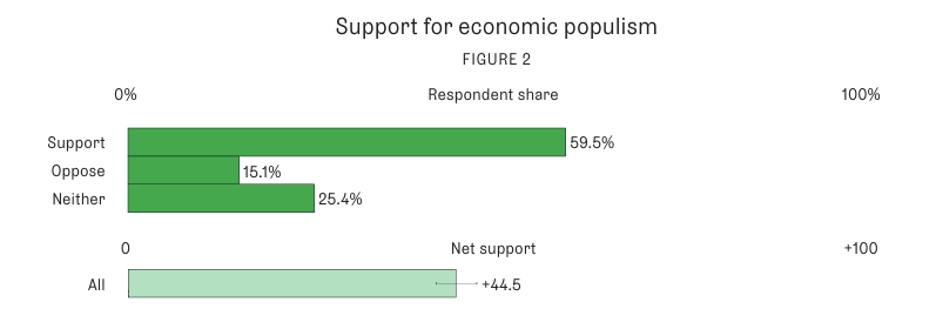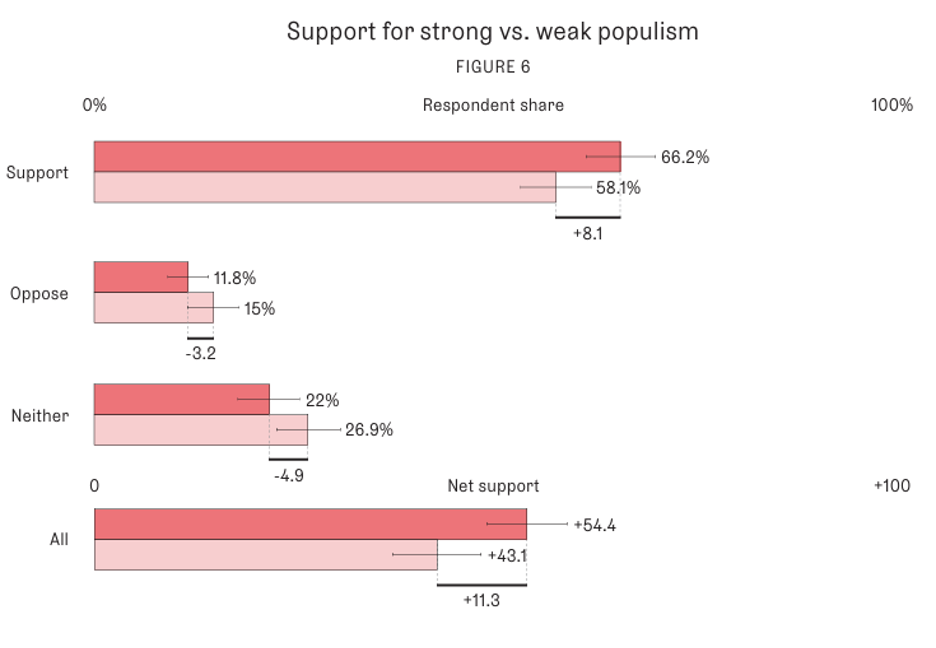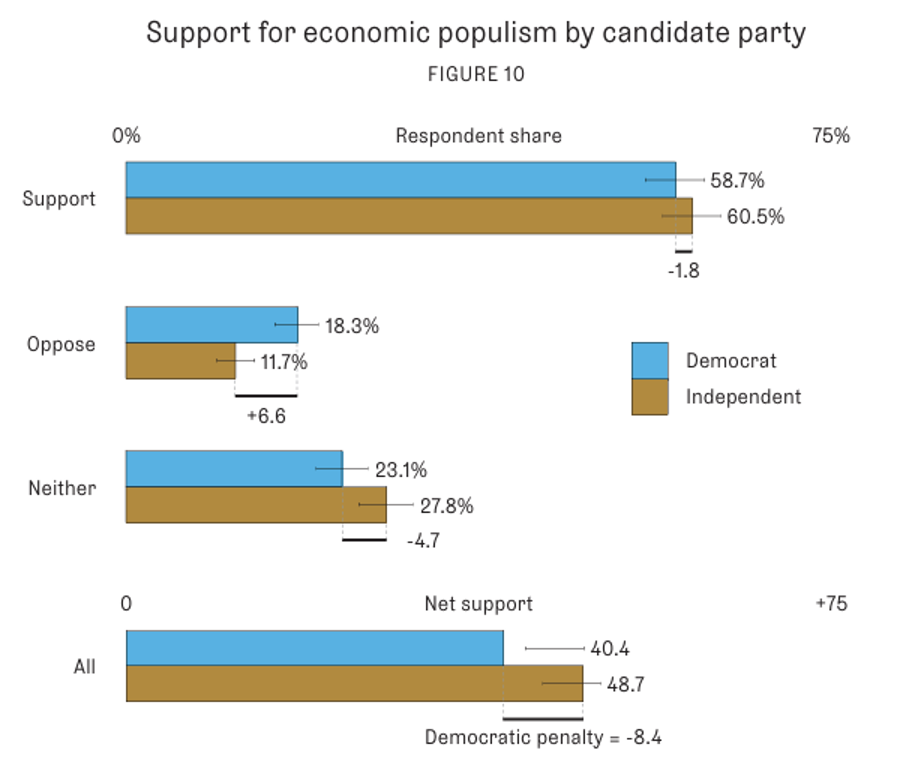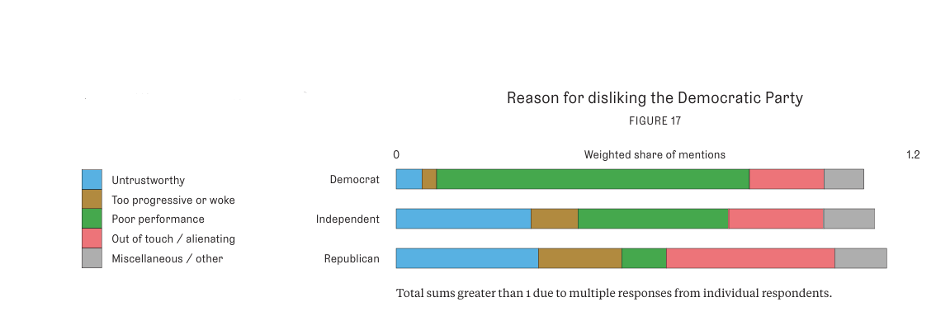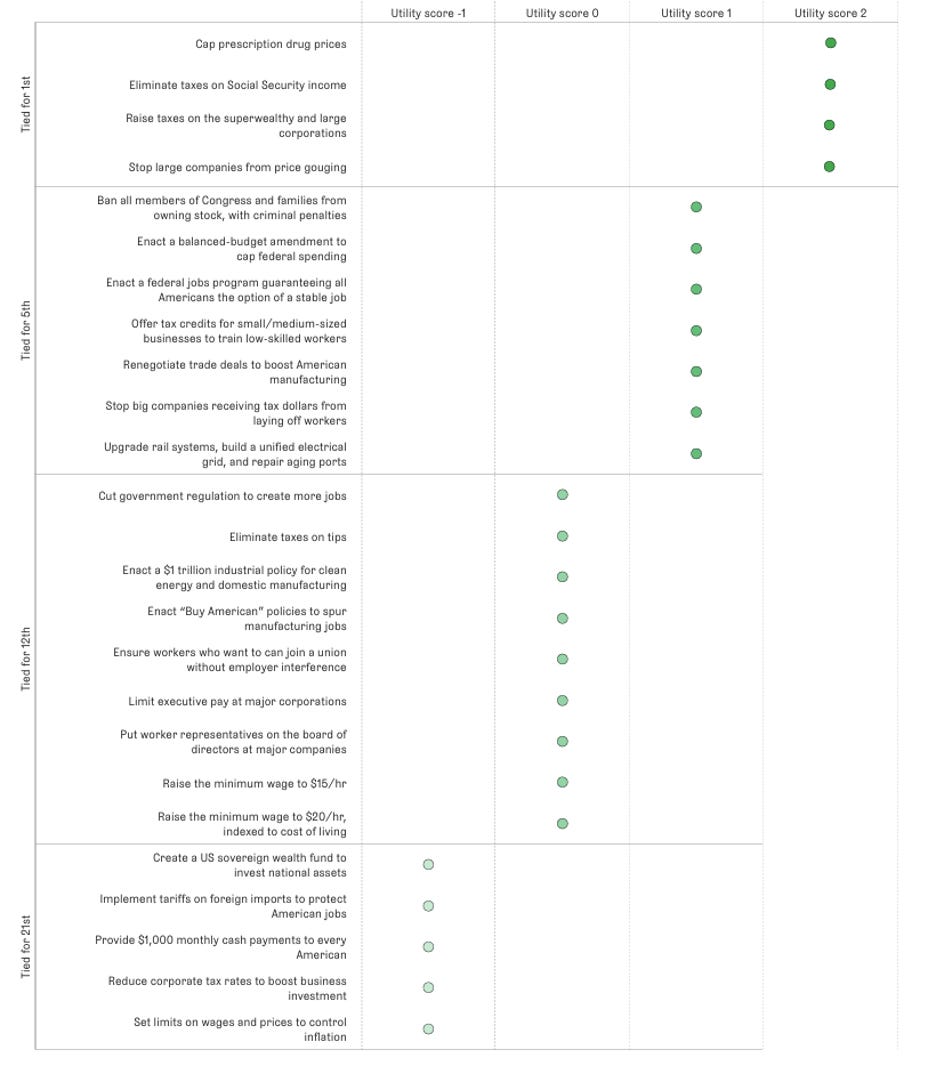New CWCP Report Release: Economic Populism Has Broad Appeal in the Rust Belt
But the Democratic Party label hurts
A new study from the Center for Working-Class Politics (with the Labor Institute, LEARN at Rutgers University, and Jacobin, fielded by YouGov) surveyed 3,000 voters across Pennsylvania, Michigan, Ohio, and Wisconsin to test head-to-head messages and concrete policies.
The headline result: strong economic populism travels — and independent candidates often carry it farther than Democrats delivering the exact same message.
Some of Our Key Takeaways
1.Strong economic populism has broad and deep support. Economic populist messaging yielded net support of +45 points (defined as the percentage of respondents who support minus those who oppose). Messages that directly named corporate greed and economic elites as the problem outperformed the softer, “populist-lite” alternative by more than 11 points.
2. The Democratic Party’s brand is a major liability. In head-to-head tests, Democratic candidates underperformed their independent counterparts by more than 8 points, even when delivering the exact same economic populist message. This “Democratic penalty” was largest among working-class, Latino, rural, and swing voters, and is more than enough to lose competitive elections across the region. The penalty was between 11 and 16 points in Michigan, Ohio, and Wisconsin. By contrast, we did not observe such a penalty for Democratic candidates in Pennsylvania.
3. Voter disillusionment with Democrats is more about failure and less about ideological extremism. Across Democrats, independents, and Republicans, many described the party as corrupt, out of touch, unwilling to fight for working people, and not a party for working people. While some of these critiques bled into broader claims that Democrats are focused on the wrong priorities, only small minorities cited “wokeness” or extremism (3% of Democrats, 11% of independents, and 19% of Republicans).
4. The most popular economic policies are bold, tangible, and grounded in fairness — and can unite voters across class and partisan lines. Across twenty-five ranked proposals, policies that reduced costs, curbed corporate abuse, and held elites accountable (capping drug prices, taxing the wealthy, and even enacting a federal jobs guarantee) consistently performed best. Support for many of these policies cut across ideological and class divisions, highlighting the potential of economic populism to build the broad coalitions progressives need to win.
5. Even an unfamiliar, ambitious proposal to ban mass layoffs by federal contractors enjoys strong support. A new policy proposal to stop large companies that receive taxpayer money from conducting involuntary layoffs was one of the most popular policies tested, despite being unknown to voters. A separate ballot-initiative simulation showed the policy retained strong net support even when targeted by corporate opposition messaging — especially when paired with rebuttals from supporters of the initiative.
6. Independent populist politics may offer a credible path forward. Across the four Rust Belt states we surveyed, 57% of respondents supported the creation of a new Independent Workers Political Association (IWPA), with especially strong enthusiasm among noncollege voters, renters, voters of color, and the economically insecure. The idea of an IWPA drew significant support from Republicans and independents as well — suggesting a realignment opportunity grounded in economic populism.
Read the full report here.
This research was produced by the Center for Working-Class Politics in partnership with the Labor Institute, LEARN at Rutgers, and Jacobin.

